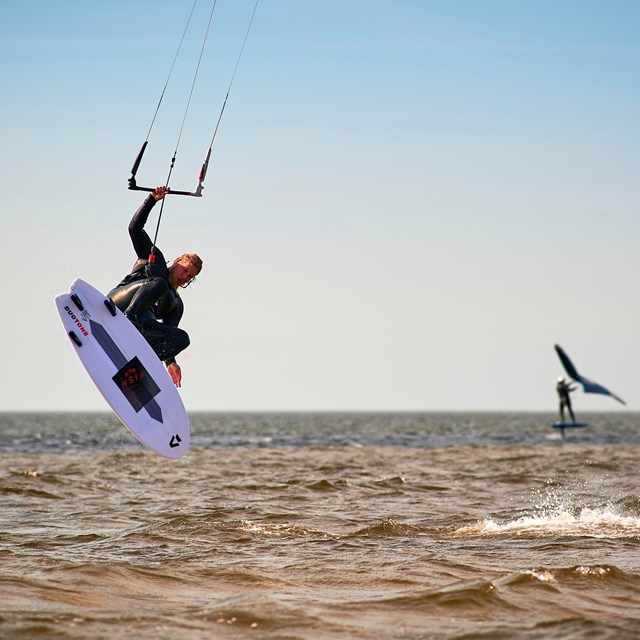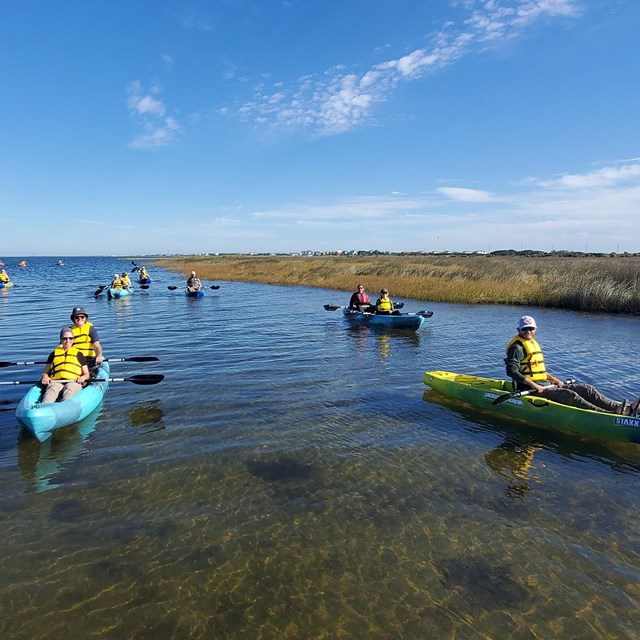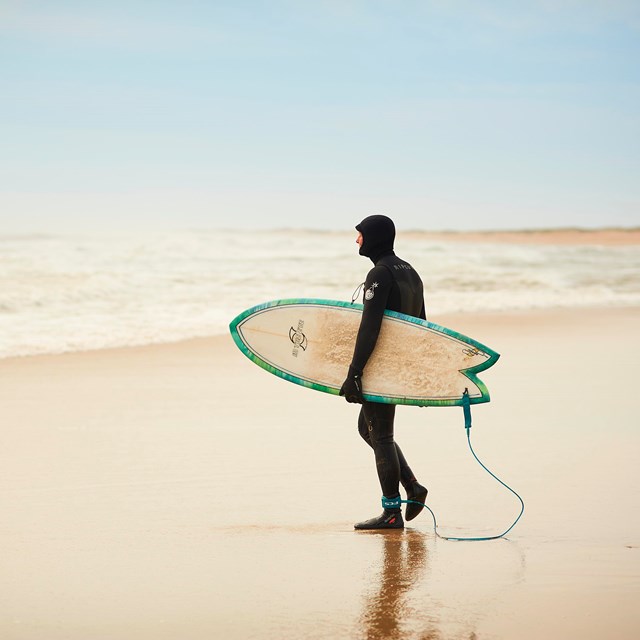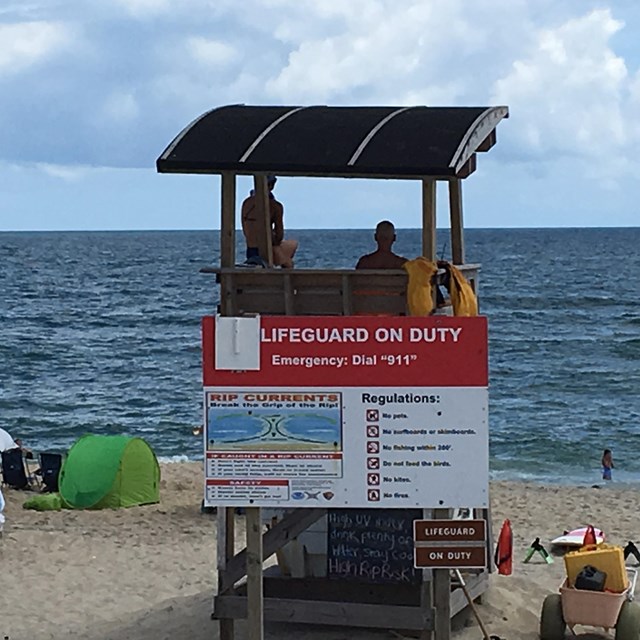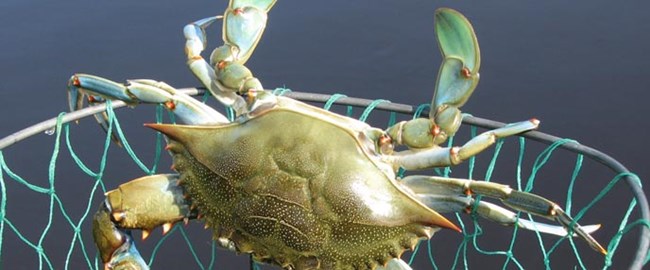
National Park Service Always remember, conditions change quickly and often on the Outer Banks, so be sure to check the weather and the daily NOAA Rip Current Hazard Forecast before your trip. When at the beach, be careful of ocean currents, especially in the inlets—don't get caught unaware.

National Park Service The ocean is a wonderful place to swim—if you are careful. Swimming in the ocean is not the same as swimming in a pool or lake. Wind, waves, the change of the tide, the slope of the beach and other factors can cause strong currents to be present in the water even on the calmest days.
Ocean conditions can change from day to day and from hour to hour. Before going in the water, spend a few moments watching the waves. Wave patterns are a good indicator of the presence of currents and where deep water and other "surprises" are located. Know what to expect before you go in the water.
Be safe by following these tips for ocean swimming.
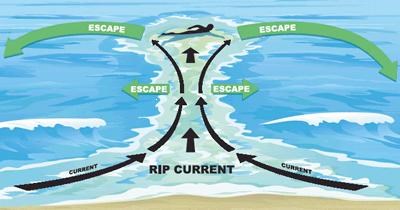
NPS Rip Currents
Underwater sandbars often develop offshore forming a trough of water between the bar and the beach. Rip currents form when the sand bar breaks and the trapped water funnels out to the sea through the break, sometimes sweeping swimmers with it.
If you find yourself caught in a rip current, don’t swim against the current. Instead, remain calm and swim across the current, parallel to the shore, slowly working your way back to the beach at an angle. Signal for help if you need it. Learn more by exploring the WebRanger rip current activity.

National Park Service This sound-side activity can be fun for the whole family. It doesn’t take long to get the hang of crabbing, especially for famous Outer Banks blue crabs. This sport can be done throughout most of the year. Don't forget to purchase your North Carolina fishing license before getting started.
Snorkeling
With a simple mask and snorkel, the shallow waters of the Pamlico Sound offers you an opportunity to discover this diverse nursery ground in a whole new light. Find calm, shallow water with abundant aquatic vegetation, float on your belly and discover were many aquatic species get their start. Just don't forget to apply sun block to your back and neck.
Jellyfish StingsIf stung by a jellyfish, seek first aid if needed. Don't rub sand on the stings. Spraying or pouring vinegar on the sting site often reduces the pain. If you don't have vinegar, try ammonia or denatured alcohol. |
Last updated: August 8, 2023

